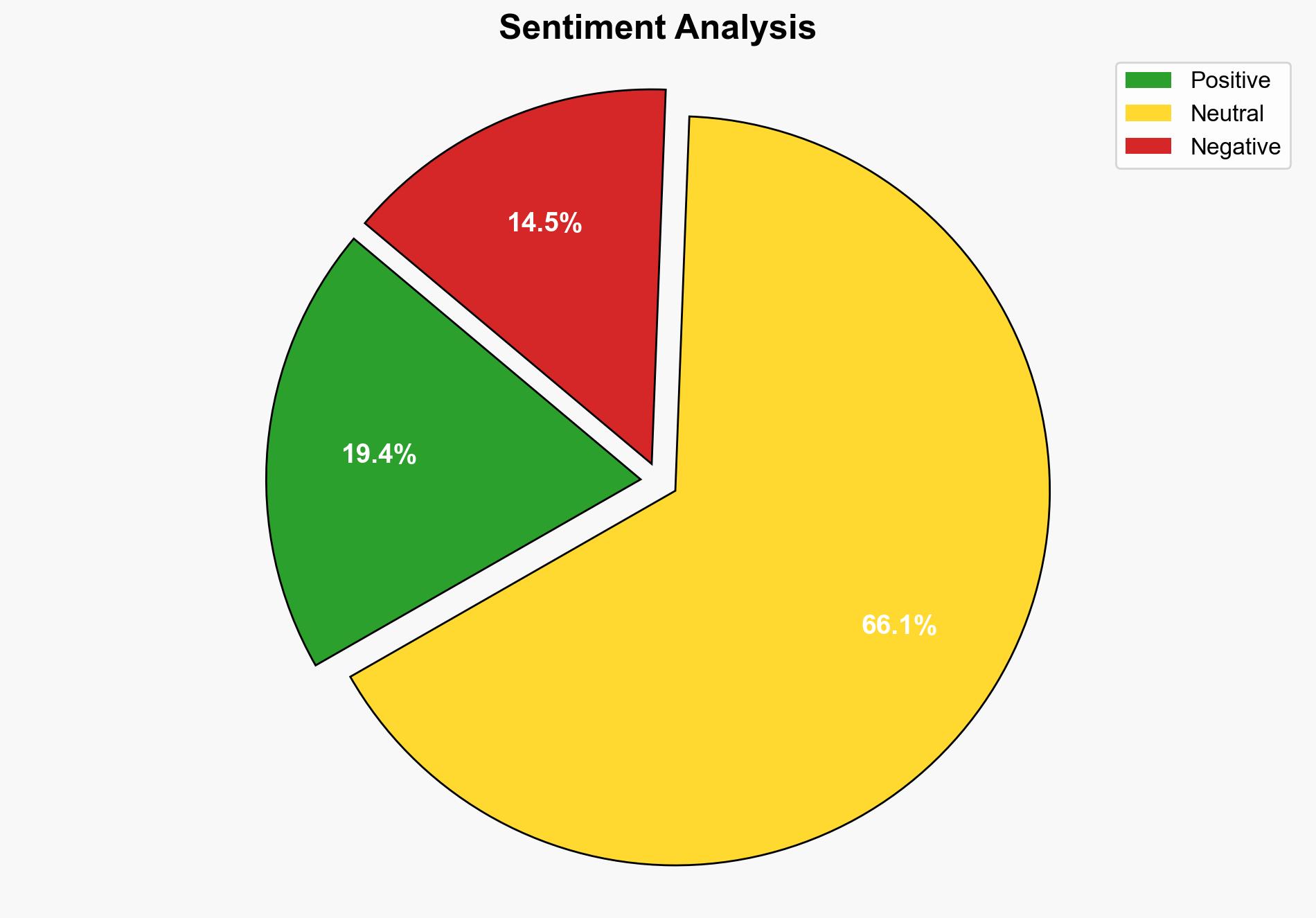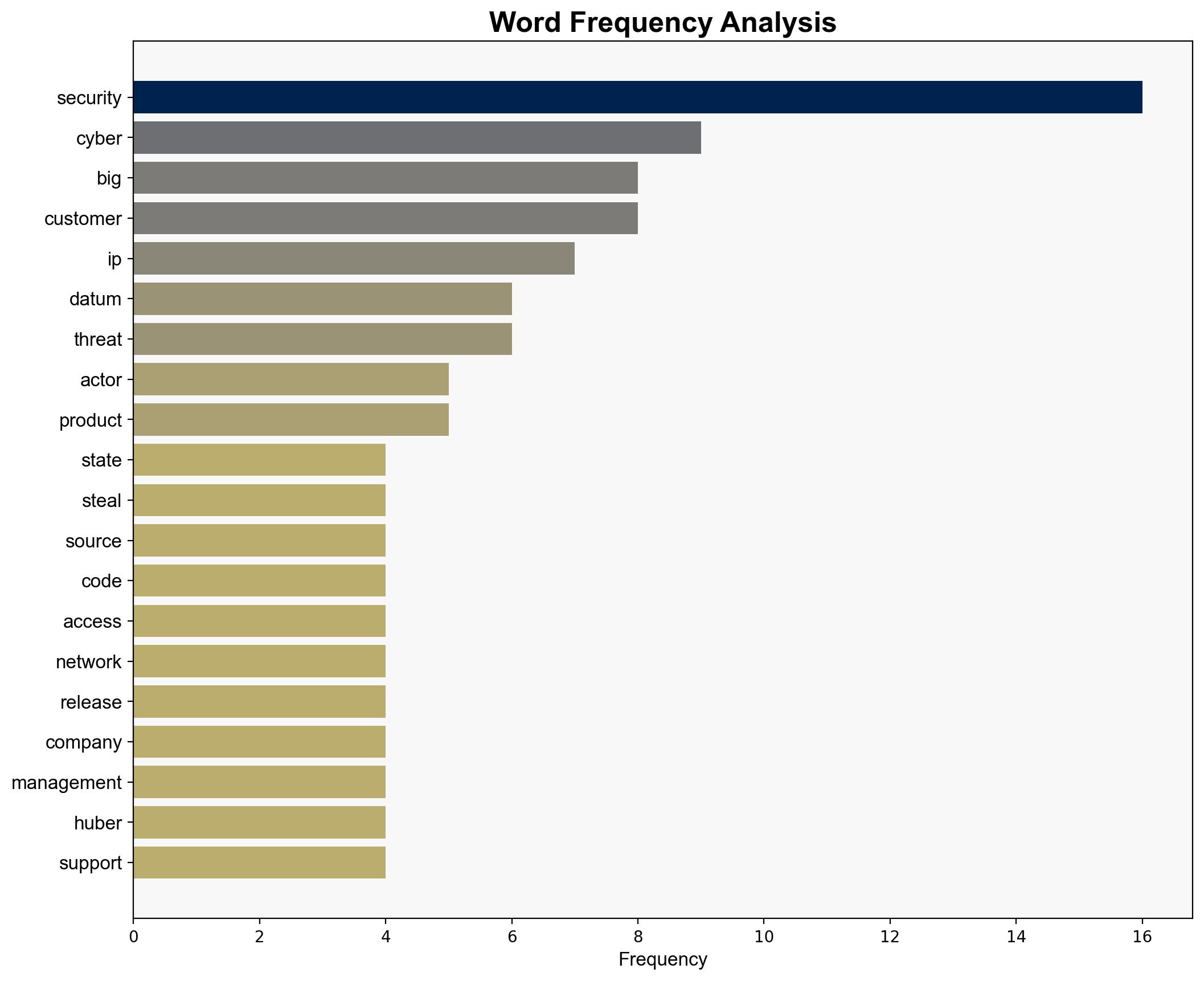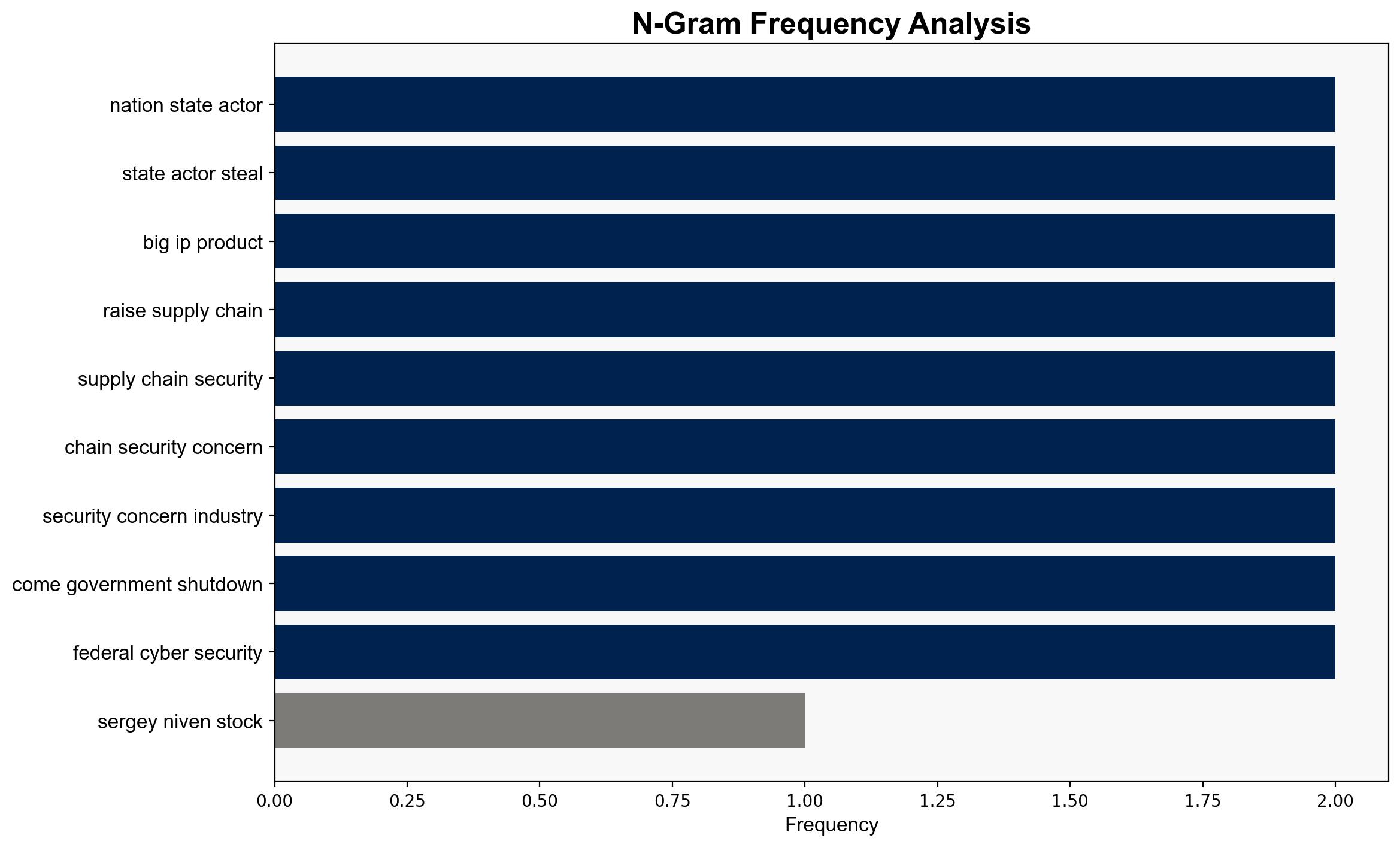F5 admits nation-state actor stole BIG-IP source code – ComputerWeekly.com
Published on: 2025-10-16
Intelligence Report: F5 admits nation-state actor stole BIG-IP source code – ComputerWeekly.com
1. BLUF (Bottom Line Up Front)
The most supported hypothesis is that a nation-state actor has successfully exfiltrated source code from F5’s BIG-IP product, potentially leveraging an unpatched vulnerability. This poses significant supply chain security risks, especially for critical infrastructure operators. Confidence level is moderate due to limited public evidence of direct exploitation post-theft. Recommended actions include immediate patching, enhanced monitoring, and collaboration with cybersecurity firms for threat intelligence sharing.
2. Competing Hypotheses
1. **Hypothesis A:** A nation-state actor exploited an unpatched vulnerability to steal BIG-IP source code, aiming to develop long-term cyber capabilities against critical infrastructure.
2. **Hypothesis B:** The breach was facilitated by insider assistance, with the goal of corporate espionage rather than direct nation-state aggression.
Using ACH 2.0, Hypothesis A is better supported by the sophistication of the attack and the focus on a product widely used in critical sectors. Hypothesis B lacks supporting evidence, as there is no indication of insider involvement or immediate financial gain.
3. Key Assumptions and Red Flags
– **Assumptions:** Hypothesis A assumes the actor’s primary motive is strategic advantage rather than immediate disruption. Hypothesis B assumes potential insider involvement without direct evidence.
– **Red Flags:** Lack of concrete evidence of post-theft exploitation raises questions about the actor’s immediate intentions. The timing of the disclosure amid a government shutdown could suggest strategic timing by the actor.
4. Implications and Strategic Risks
The theft could enable the actor to develop advanced cyber tools, potentially leading to future attacks on critical infrastructure. The breach highlights vulnerabilities in supply chain security, which could be exploited by other actors. Economically, companies reliant on BIG-IP may face increased costs for security upgrades. Geopolitically, this incident could escalate tensions if linked to a specific nation-state.
5. Recommendations and Outlook
- Immediate deployment of security patches and updates for BIG-IP products.
- Strengthen supply chain security protocols and conduct regular vulnerability assessments.
- Engage in international cooperation to attribute and respond to the threat actor.
- Scenario Projections:
- Best Case: Rapid patching and international cooperation prevent further exploitation.
- Worst Case: Actor develops advanced cyber capabilities, leading to widespread infrastructure attacks.
- Most Likely: Increased cyber vigilance and patching mitigate immediate risks, but long-term threat persists.
6. Key Individuals and Entities
– Bob Huber
– F5 Networks
– CrowdStrike
– Mandiant
– NCC Group
– IOActive
7. Thematic Tags
national security threats, cybersecurity, counter-terrorism, regional focus





